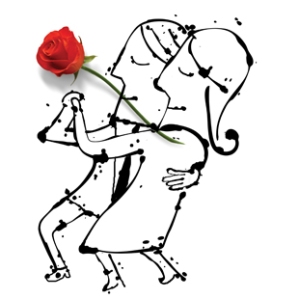Last night I saw “I’m All Yours,” one of the films at this year’s Portland International Film Festival. For some reason, my friend and I thought it was a comedy (which is partly why we chose it)- but it wasn’t. So instead of having a piece of light-hearted and fluffy entertainment, I received something deeper to reflect on.
Here is the synopsis from the PIFF website:
**
I AM YOURS
DIRECTOR: Iram Haq – NORWAY
Mina is a young single mother living in Oslo with her six-year-old son Felix. A Norwegian-Pakistani, she has a troublesome relationship with her family, who blame her for her divorce. Understandably: she’s a natural flirt, and while she has plenty of male companions, they tend not to hang around for long. One day, Mina meets Jesper, a Swedish film director, and they fall head over heels in love, but boy and man don’t exactly see eye to eye…. “I wanted to make a very naked and true story…. Often we see female characters being as good a person as possible. Mina is a normal human being, always running after being loved but not knowing what love is.”—Iram Haq. This year’s Norwegian submission for the Best Foreign Language Film Oscar.
**
The movie opens with Mina masturbating to porn- I already knew I was going to like her. And from there on out, we see that she accepts and welcomes her sexuality. Although her family is a traditionally hierarchical and patriarchal Indian family, she has somehow managed to divorce a husband (seemingly because she flirted too much with other men) and keep up with various lovers. I appreciated witnessing a character that has unbridled lust, a complex sense of what it means to be a parent, and a complicated way of interacting with her son, parents, and lovers.
The film illustrates the control her family seeks to have over her and her sexuality perfectly- it is unflinching and suffocating.
As I watched Mina run from lover to lover, I was struck by the title of the movie- “I’m All Yours.” That seems to capture Mina’s approach to relationships and love- handing all of herself over to whatever romantic partner is in front of her. But that leaves her with none of herself to tend to. Even the modeling from her family around parental-child relationships and love show that parents do not love and accept their children unconditionally, a pattern that she does not exactly emulate although she does end up physically abandoning her own child. I kept rooting for her silently: You are all yours! Through her parents trying to control her life and her relationships, her ex husband pressuring her to behave in different ways as a parent, and her various lovers manipulating and using her in ways that suit only them, I watched her hand over herself to the people in her intimate life and then silently move through her days. The movie ends quietly, with her alone. I was left wishing that she finds herself, collects all of the pieces of herself she has given away unknowingly, and reclaims her sense of identity.
I think the movie shows the rub between different value systems: interdependence and familial obligation, individualism, sexuality as freedom, sexuality as sin. If you have a chance or ability to see the film for yourself, I recommend it.


